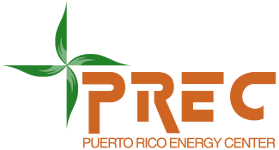We examine the potential advantages of using hydraulic transmission over traditional gearbox system on horizontal-axis wind turbines. A striking benefit of the hydraulic wind turbine is the reduced weight and the placement of key components at ground level leading to greater stability over the traditional drivetrain. This is particularly useful for offshore applications, where substantial reduction of the cost of energy is clearly possible, in the order of 20%. Furthermore, the displacement of the center of gravity near to the base of the turbine allows for greater stability in floating platforms. Based on the power spectrum model of Tobin et al (2015), we explore the spectral response of the hydraulic wind turbine and assess the impact of turbulence on the power production.
Luciano Castillo, Ph.D.
Kenninger Chair Professor of Renewable Energy & Power Systems
Purdue University
Prior to joining Purdue University, Luciano was the inaugural Center Director of the National Wind Resource Center and the Don-Kay-Clay Cash Distinguished Engineering Chair in Wind Energy at Texas Tech University. For many years he was Professor at Rensselaer Polytechnic Institute in the Mechanical & Aerospace Department. His areas of research interests include turbulence, renewable energy and bioengineering. He has published over 100 publications, edited several books on renewable energy and co-authored several patents (e.g., energy, healthcare, etc.). Some of his awards include: Fellow ASME, the NASA Faculty Fellowship, the Martin Luther King Faculty Award, the Robert T. Knapp Best Paper Award from the ASME, the Best Paper Award from the Journal of Renewable Energy, the Best Paper Award from IEEE, and the Rensselaer Faculty Award (twice). He gave several keynotes lectures, plenary lecture, and distinguished lectures on wind energy. Currently, he serves as Associate Editor of Wind Engineering & Science and serves in various scientific committees on renewable energy in Europe. He is passionate about inclusiveness and mentoring students and young faculty, and founded and organized two summer research institutes on renewable energy & medicine, which included students, faculty, and K-12 teachers. For his contributions and impacts on inclusiveness, he received in 2016 the McDonald Mentoring Award from ASME and was nominated for a Presidential Award given by the President of the USA.
